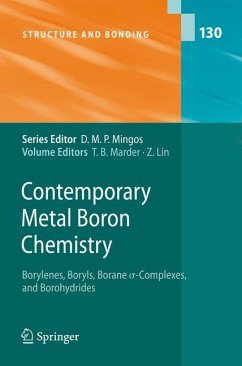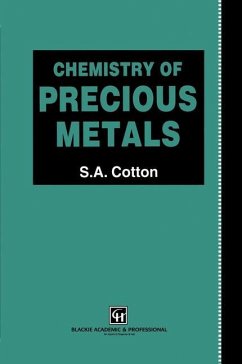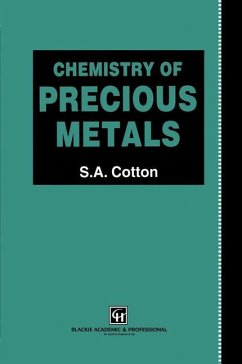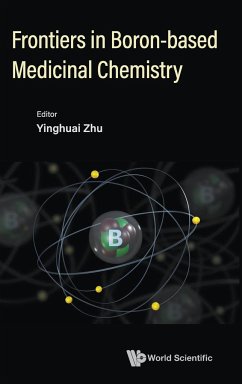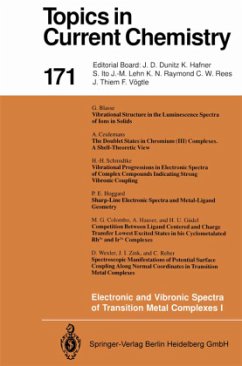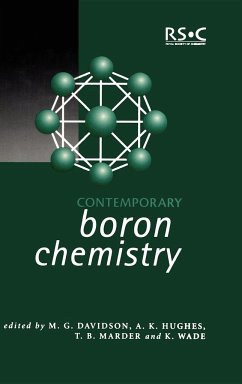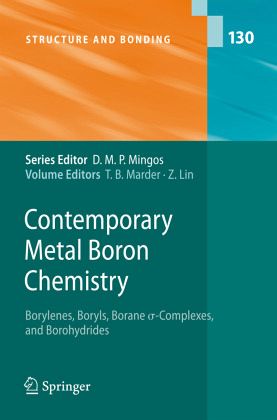
Contemporary Metal Boron Chemistry I
Borylenes, Boryls, Borane Sigma-Complexes, and Borohydrides
Herausgegeben: Marder, Todd B.; Lin, Zhenyang
Versandkostenfrei!
Versandfertig in 6-10 Tagen
152,99 €
inkl. MwSt.

PAYBACK Punkte
76 °P sammeln!
The ?eld of metal boron chemistry has been an especially active one since the 1960s. Much of the early work centered on the synthesis and structural characterization of polyhedral metallaborane and metallacarborane clusters, which will not be discussed in the current Volume. However, early work on metal boryl complexes by Nöth et al. also appeared during this period, - thoughthe?rstsimple metalborylcomplexestobestructurallycharacterized bysingle-crystalX-raydiffractionwerenotreporteduntil1990(indeed,crystal structuresofiridiumhydridoborylcomplexeswerereportednearlysimulta- ouslybyBaker,Marder...
The ?eld of metal boron chemistry has been an especially active one since the 1960s. Much of the early work centered on the synthesis and structural characterization of polyhedral metallaborane and metallacarborane clusters, which will not be discussed in the current Volume. However, early work on metal boryl complexes by Nöth et al. also appeared during this period, - thoughthe?rstsimple metalborylcomplexestobestructurallycharacterized bysingle-crystalX-raydiffractionwerenotreporteduntil1990(indeed,crystal structuresofiridiumhydridoborylcomplexeswerereportednearlysimulta- ouslybyBaker,Marder,etal. [1]andbyMerolaetal. [2]),andthisnewinterest in the area arose speci?cally as a result of the report by Nöth et al. [3] on the rhodium-catalyzed hydroborationof alkenes using catecholborane. Although there had been previous reports of metal-catalyzed hydroboration employing polyhedralboranesorcarboranesastheB Hsource[4], theseminal paper by Nöth et al. in 1985 [3] marked the beginning of interest by the organic ch- istry community in the application of this reaction in organic synthesis [5]. Whatensuedwasaveryrapidincreaseinthenumberofmetalborylcomplexes to be synthesized and structurally characterized, along with studies of their reactivity,in conjunctionwithan equally rapid growthinthedevelopment of catalytichydroborationchemistry[5]anditsasymmetricversion[5e]. Thiswas followedbyawidevarietyofotherborylationreactionscatalyzedbytransition metals including diborations, silylborations, stannylborations, and thiabo- tions of unsaturated organic substrates [6], borylations of ?,?-unsaturated carbonyl compounds [7], borylations of C halide bonds [8], and most - cently, borylations of C H bonds in alkenes, arenes, heteroarenes, and even alkanes[9,10]. TheC halideandC Hborylationchemistryhasbeendrivenby thedevelopment andbroadapplicationoftheSuzuki Miyaura cross-coupling reaction[11],whichisnowoneofthemainC Cbond-formingreactionsinthe arsenal of the organic chemist. Thus, the synthetic and structural chemistry ofmetalborylcomplexeshasgrownalongwithcatalyticapplicationsinwhich metal borylcomplexes are key intermediates. Likewise, the importance of metal borane?-complexes as intermediates in many catalytic reactions has only recently been recognized [12], and thisarea is now a rapidly expanding one.



